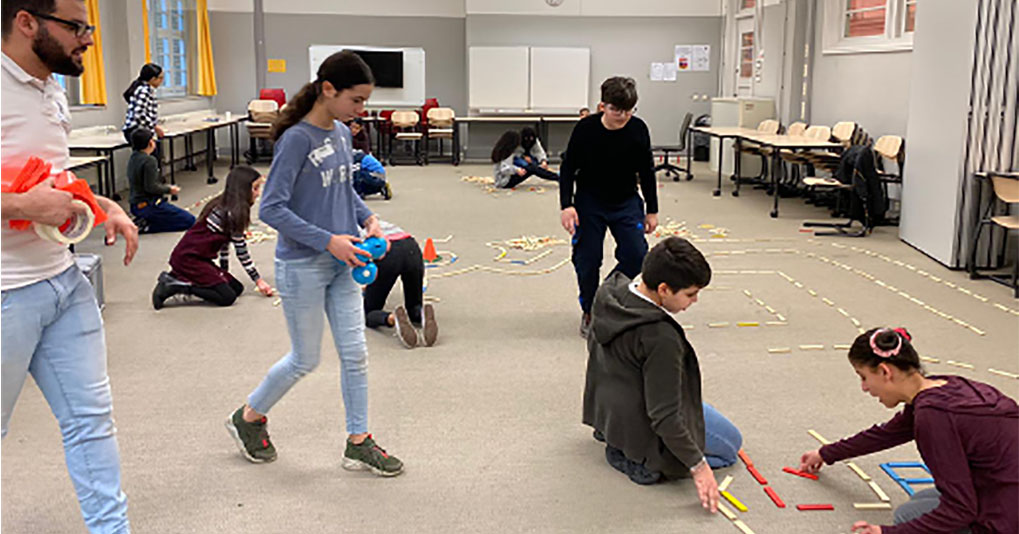What robots can teach about inclusive education
A technology course for underserved youth in Amsterdam shows them they can achieve what they set their minds to
About 40 children crouch on the floor intently building tracks with colored wooden blocks. When they position a little blue robot with two wheels on the track, they’re amazed to see that it’s able follow the lines and find its way to the other side of the room. That’s because it can distinguish light and dark, explains their teacher, a volunteer from the Dutch educational startup Robotwise. He is spending his Sunday teaching kids at the IMC Weekendschool what a robot is and how it works.
This was one of four Sundays of the technology course the IMC Weekendschoool organized for January, supported by the Elsevier Foundation. It welcomed underserved children age 10 to 14 from the Amsterdam West neighborhood.
Designing the technology course
Working with IBM and VhTo (the Dutch national expert organization on girls and women in science and technology), the staff at IMC Weekendschool designed modules around different aspects of technology with the aim of giving students a broad perspective of this vast field. Students explored AI, data analytics, machine learning, computational thinking, coding, apps development and robotics – with a special attention to the relationship between humans and technology.
“Technology is integrated into every professional field: we added this course for our students to explore how technology is present in their daily lives, as well as in society at large,” said Course Coordinator Stasja van Droffelaar.
To design the classes, she explained, they worked with professionals in the field “to identify initial building blocks for an introductory lesson – and then we dived deeper and made sure that the students would be able to work on an assignment of their own, with plenty of hands-on, practical exercises.”
It was important for the team that students became aware and critical both as technology users and as possible future creators, exploring ways that technology is developed and understanding its potential as well as dangers.
Read the full article on Elsevier Connect: “What robots can teach about inclusive education“, Domiziana Francescon, 22 July 2020.



















